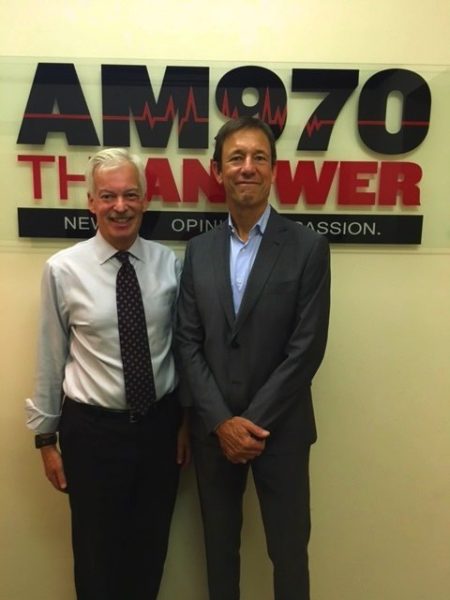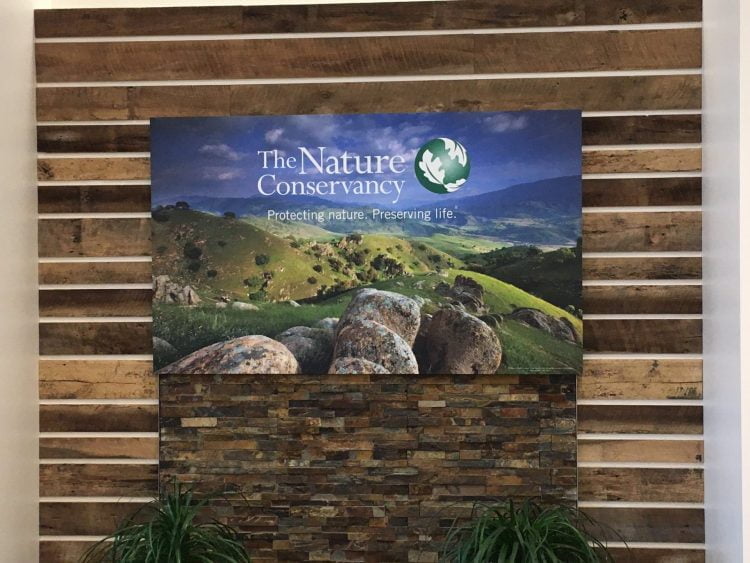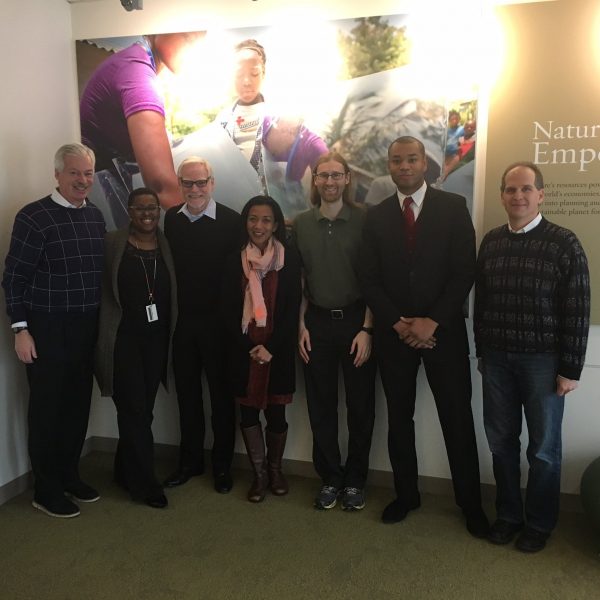Better Than Most is a regular feature of The Business of Giving examining the best places to work among social businesses and nonprofit organizations.
Transcript
Denver: And for this edition of Better Than Most, you’ll be traveling to Arlington, Virginia and the corporate headquarters of The Nature Conservancy, the largest nonprofit environmental group in the world.
We will begin with their President and CEO, Mark Tercek, and then hear from several of the dedicated members of the TNC team.
Mark: So we have 4,000 people on our team. We have 1,500 or so volunteer leaders we call trustees. Everywhere we work, we’ve got boots on the ground. In other words, therefore, we’re not just telling other people what to do. We’re trying to do it ourselves. Now, whenever we do these things on the ground, we’re doing it in partnership with others too, often local organizations, local people, but it kind of keeps you humble, keeps you focused. We don’t get carried away with crazy ideas. I think it’s a very good formula for us.

Denver Frederick and Mark Tercek
Rosita: Another thing I love about this organization especially as a woman of color who works here is that the organization is constantly self-critical and trying to be better, and part of the team of that I work on is actually focused exclusively on how can we make this organization better in terms of a place where all employees feel valued and can actually thrive. And it’s a testament to that self-criticism that as an organization we don’t rest on our laurels and it’s always “how can we be better and smarter and more impactful?”
Gondan: I started off as a conservation staff and then after five years, I moved to development, and then went back to conservation and now, here, I’m in development, in changing countries at the world office. So at TNC, as long as you know what to do and you proved that you can do the work and that you can do it while you’re having fun, really lets you do whatever you want to do that fits with our mission and our core work.
John Bender: It is that ability to reinvent yourself that has been one of the greatest strengths I think of the organization. And part of that reinvention has been our recognition over many years of the desire and the need for a more diverse workforce. And we have a more inclusive workforce and we’ve taken a number of runs at it over my career here at the organization, but we finally, I think, have a lot of heft from the whole organization behind it, and that has made a big difference. I think that going forward, you’ll see many more different faces siting in the cubes, both here at WO and then around the offices, the business units outside of the US.

Jon Fisher: And if you’re in a conservation organization, you kind of know the outcome before you do the science. So talking to colleagues at other organizations—I won’t name any—but the scientists’ job is to prove what you want the message to be. At the Conservancy, of course, we’re doing science to meet the mission, but when we have an inconvenient result, we still publish it. And so as somebody who has honest – one of our core values is integrity beyond reproach – and that’s something that I just really think is so important, especially at a time when trust in scientists is declining.
Johnny: I work in the legal department for The Nature Conservancy, and I tap dance to work. I tap dance to work because I love the people.
Professional development is really important to me and my supervisor has been really helpful. He empowers me to be the best person I can be, not only for myself but for the Conservancy, because a better me is a better conservancy. A great example, I support folks in Brazil. I told my boss, “I speak Portuguese but I think I could be better at it.” So he said, “You need a strength in that skill set, let’s send you to Brazil.” So I spent a month in the Rio de Janeiro office, both working and in a language immersion program. And it was an incredible experience because I got to work in a different culture, see the mission from a different perspective, learn Portuguese, and also work from the beach on occasion, which is a part of the mission.
Tom: Because the mission is what brings people here, but the people are what make you stay. I think I had more folks walk in to my office in the first week I was here at the Conservancy than in the first year I was at my last private sector job. And all of them were coming in largely with the message that said, “Hey. Welcome to the team. Welcome to the party. How can we help you be more successful? How can we help you help the mission and help us all be the kind of organization we want to be.” I’ve been around the block a few times like a couple of other folks in this room, and that really is something rare and it’s something that’s very special about this place.
John Bender: We have some guidance, we’re getting tons of input, but we’ve got leadership who are actually making what I think are some really interesting decisions and are really putting us on a path to some pretty heavy goals but also some really exciting work, and that is one of the things that I find so rejuvenating.
Jon Fisher: And I’ve come to realize that a lot of people don’t eat lunch together. I think it’s partly, aside from being introverts, a lot of people, we just have this almost panicked devotion to the mission. And so I think a lot of times, people are like, “I can’t take time for lunch. I can’t take time for coffee. I got to get back to saving the planet.” And so like I said, it took me a while to kind of get through that but it’s also kind of endearing in a way that it’s not that people don’t want to hang out with you. It’s that they’re all really caring about the same thing you’re caring about.

Denver: I want to extend my thanks to Tom Casey and Geraldine Henrich-Koenis for setting up my visit and to those who participated in addition to Tom: Gondan Renosari, Johnny Cabrera, Rosita Scarborough, John Bender, and John Fisher. If you’d like to listen to this again, read the transcript, or see pictures of the participants and the offices of TNC, go to denverfrederick.wordpress.com and while you’re there, you can hear my full interview with Mark Tercek, the President and CEO of The Nature Conservancy.
*The Business of Giving can be heard every Sunday evening between 6:00 PM and 7:00 PM Eastern on AM 970 The Answer in New York and on iHeartRadio. You can follow us @BizofGive on Twitter and at Facebook.com/BusinessOfGiving.

